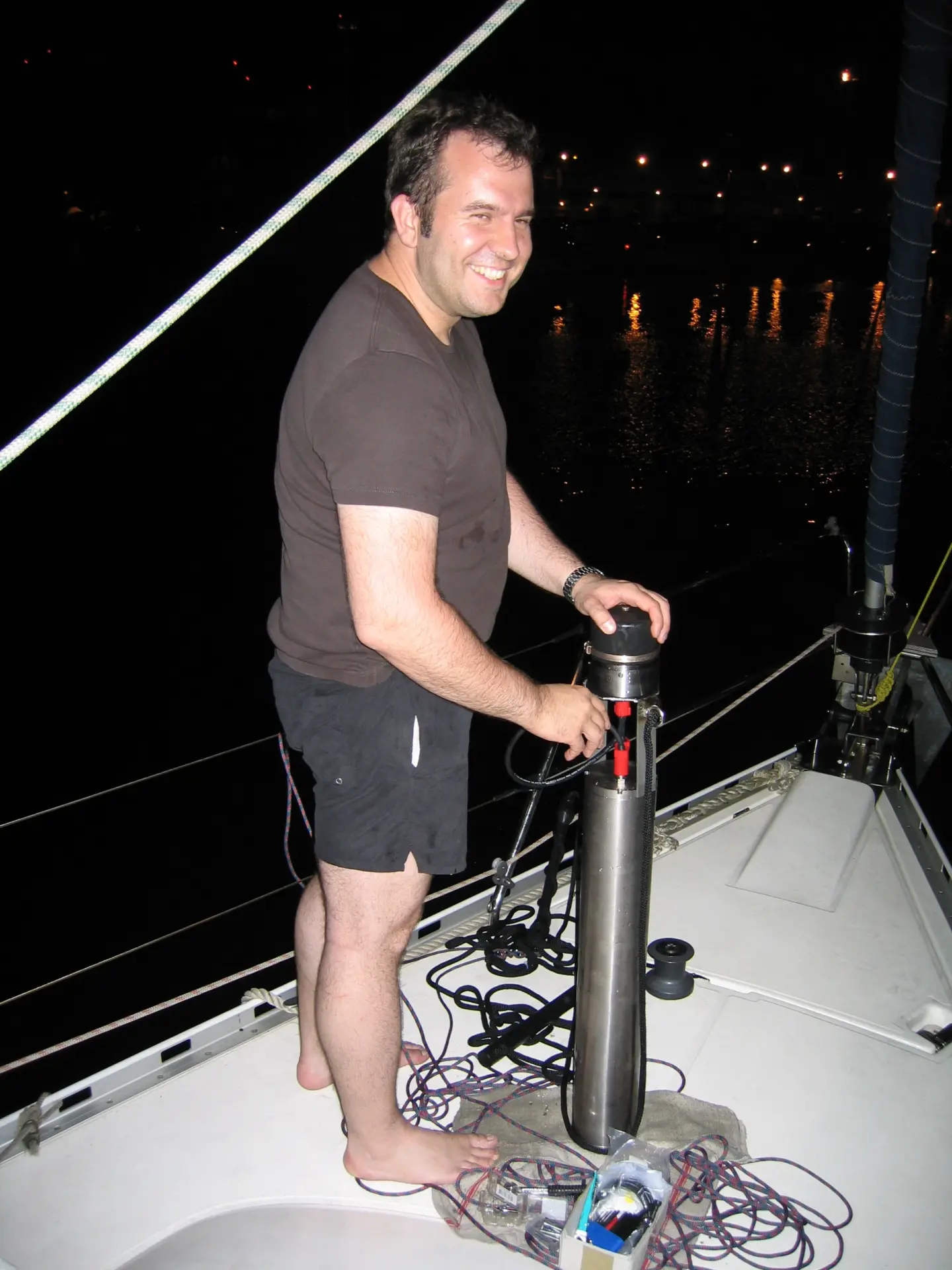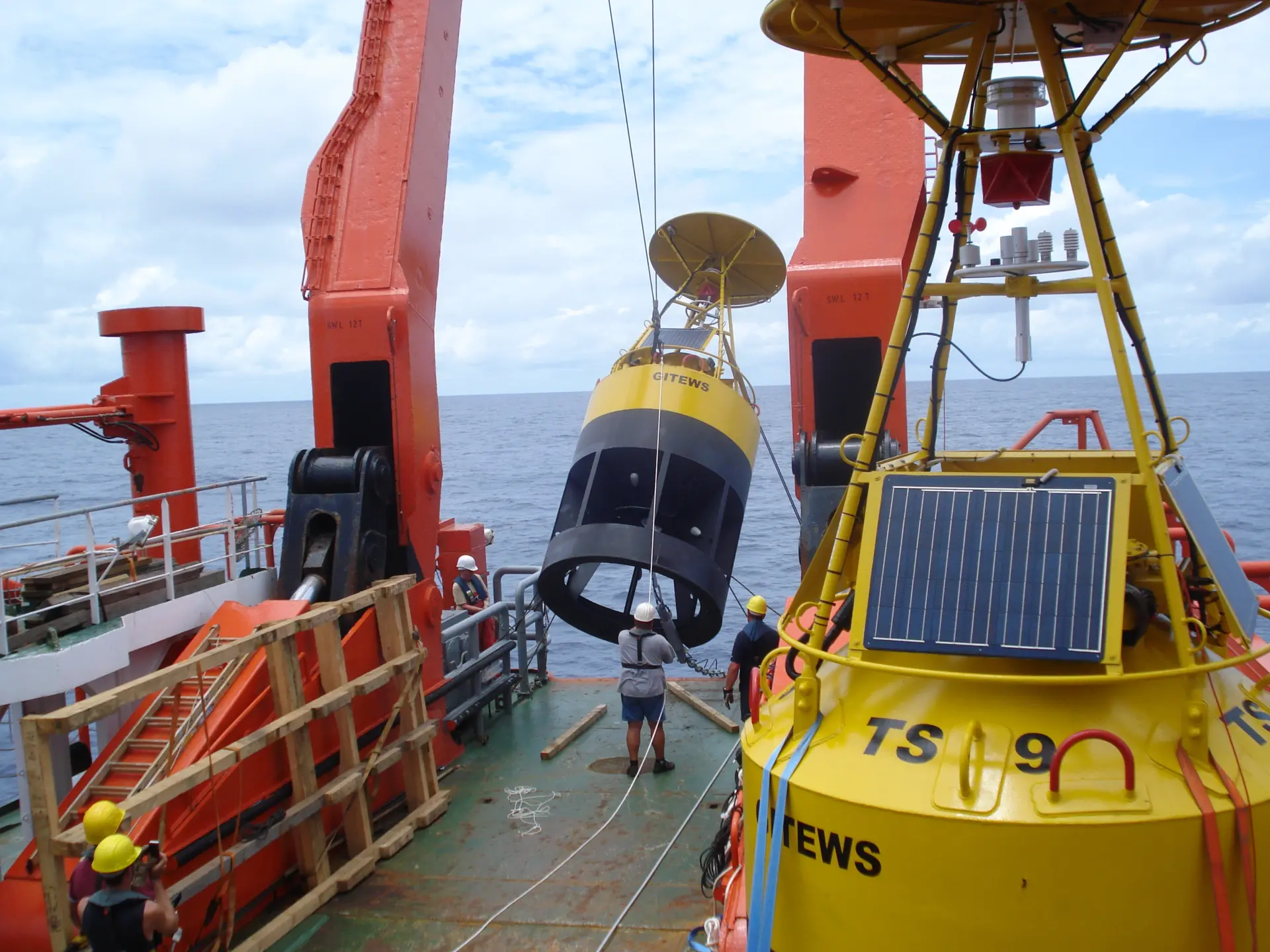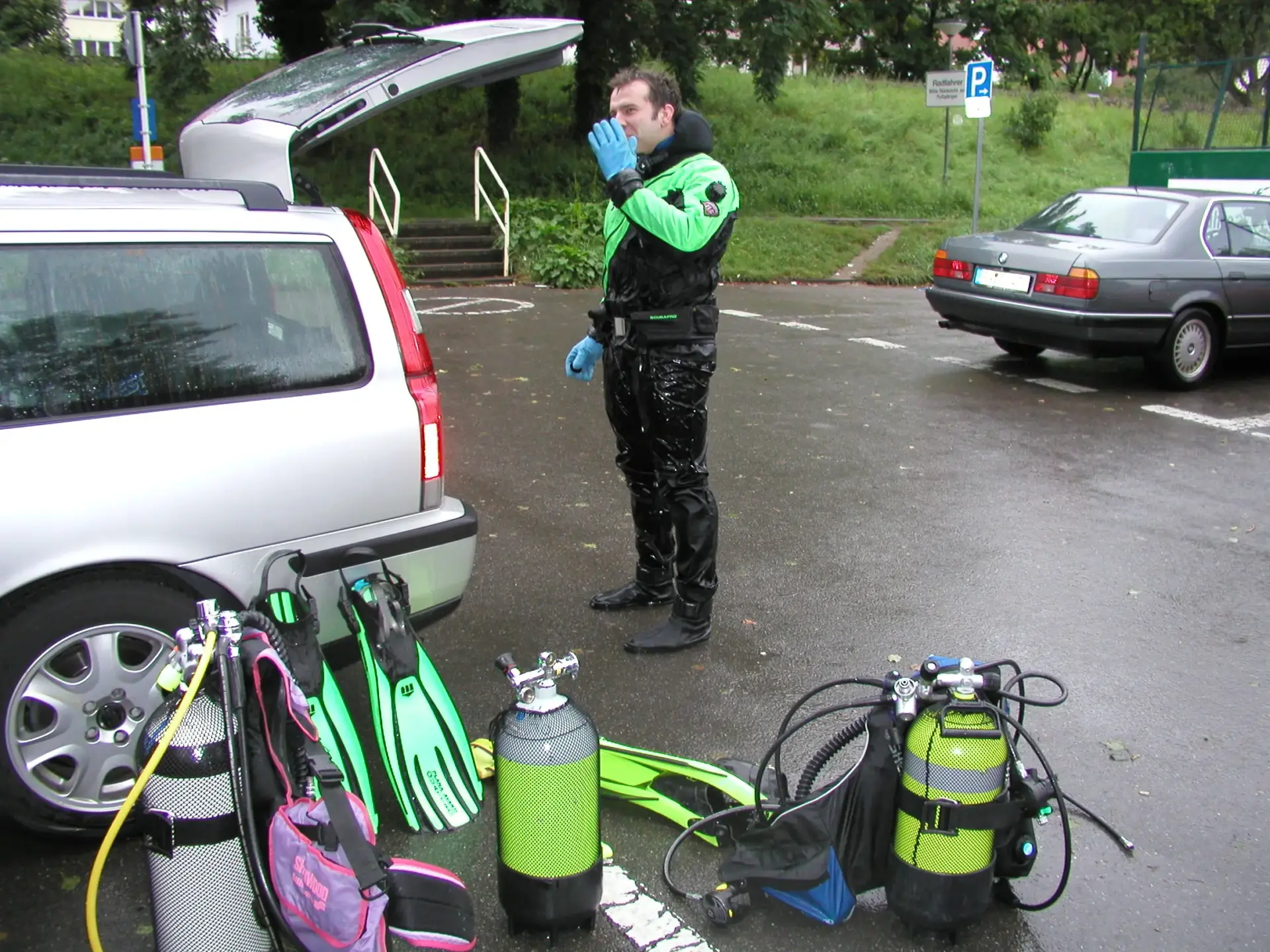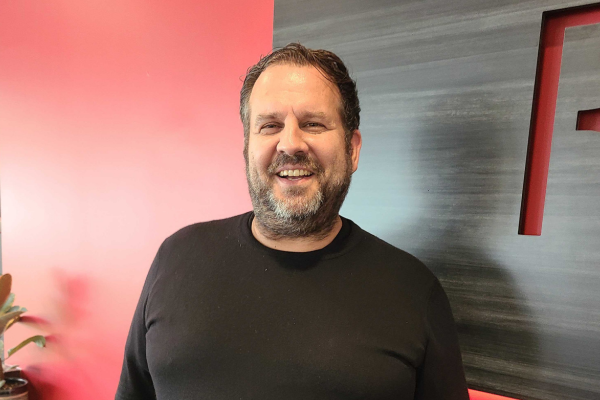Welcome to RBR! Tell us a bit about who you are and what you’ll be doing at RBR.
I’m Markus Motz, I’m 51 years old, so really old, I feel! I’m German, living in Hamburg. My position here is as director of research and development.
I have several tasks here. High level tasks will involve better organization of research and development, putting more structure into the development process. A second one would be to expand the product portfolio into new directions. I think, from my previous job, I have a very good understanding of the market and the technologies. A third one is certainly also working with customers. For example, my first week here, we had a meeting with the Université du Québec en Outaouais in Gatineau, about a beluga monitoring project in the St. Lawrence River. So, there’s a lot to do.
Right now I’m going to share my time between Ottawa and Germany. In Germany, we’re trying to set up a branch of RBR; we already have one guy joining up, possibly more. But the long-term perspective is to spend more and more time here in Ottawa, which I’m really looking forward to.
What are your first impressions of RBR so far?
I was here for the first time last September, but Greg and I have been talking about the job for a long time already. He finally convinced me. The team is great. I really look forward to working with them really, really closely. So I’m quite excited to be here. Nice people. As far as I can tell from the first few days, I’m really happy. Everything seems to be great.

What did you do before joining RBR?
I have a master’s degree in Aerospace and Aeronautical Engineering. My actual first job was not in Germany, it was in the US, in Duluth, working for Cirrus Design. I went on to work in Israel for a couple of weeks, also in aviation, then spent about four years in Africa, in Congo, which was quite exciting. I went back to Germany to take on a position at the University of Stuttgart as a research scientist and lecturer, and did that for four and a half years. That was at the institute for statics and dynamics of aerospace structures. So, it was mostly about numerical simulation, and software systems for finite element simulation. I intended to do a PhD, which I never finished, because quite early on in the job, I had the somewhat stupid idea to form a company, develogic, and that took up more and more time. I finally quit the university job and did work for develogic full time; I ran that company for almost 23 years.
Editor’s note: Markus is being too humble. He built one of the leading companies in custom data acquisition and telemetry for marine monitoring, and you should check it out at www.develogic.de
Was that when you switched over into marine technology?
Initially, it was about signal processing and electronics development for automotive and aerospace customers. The first marine technology related project was about acoustic pattern recognition. The Alfred Wegener Institute, which is a polar research institute in Germany, had many thousands of hours of acoustic recordings from the Antarctic, and they wanted to identify automatically when which species of marine mammals was audible in these recordings. And so we made that software. I came to like that field of business way more than contract development. And from there we did acoustic communication systems, tsunami early warning systems in Indonesia, and larger and larger subsea observatories. One of my last projects at develogic was the Lofoten-Vesterålen observatory in Norway, which is Europe’s largest observatory, somewhat comparable to the NEPTUNE observatory in Canada. So yeah, that’s pretty much the track record. Back then, besides being managing director I did a lot of hands on development work. First software and electronics, then later on also mechanical engineering and design. And I intend to keep doing this, putting in new ideas, thinking about new products together with Greg, and expanding the portfolio of products at RBR.

What are you most excited about in joining RBR?
I think of RBR as a very dynamic company. I’ve been watching RBR for many, many years. I’ve known Greg, since, I would say, 15 years. Back then the oceanographic sensor market was more or less dominated by Seabird. And in Europe, it was also a good share Aanderaa, from Norway. It is quite exciting how that has changed. RBR took over more and more of the market. The quality of the sensors improved to degrees so that they’re now really the leading sensors regarding accuracy, regarding low power. So it’s great design. And I hope that we can extend that dynamic of RBR into the development of additional products and systems in the long run. And so the idea is to build up, and be able to offer systems like whole observatories, as well. That’s the long term vision.
The other thing is, at my previous job, I was more and more pushed into the commercial role as managing director. And I’m actually more of a technology, technical guy. This is what I really want to do. And so it’s the perfect role for me here.

What about outside of work? How do you like to spend your time?
I’m really into diving, scuba diving, but also rebreather diving since many years. So I did that to a really large extent when I had free time. I hope to be able to do that more again. I heard there are quite a few nice wrecks in the St. Lawrence and the lakes. Lately, I was only diving around Germany and the Baltic Sea. But before that, it was quite often Norway. Norway is really exciting. It’s different. It’s cold, dark, deep. Also has nice wrecks there. So that is one thing, and also hiking and some biking.
Contact Markus:
+49 170 3141187
markus.motz@rbr-global.com
